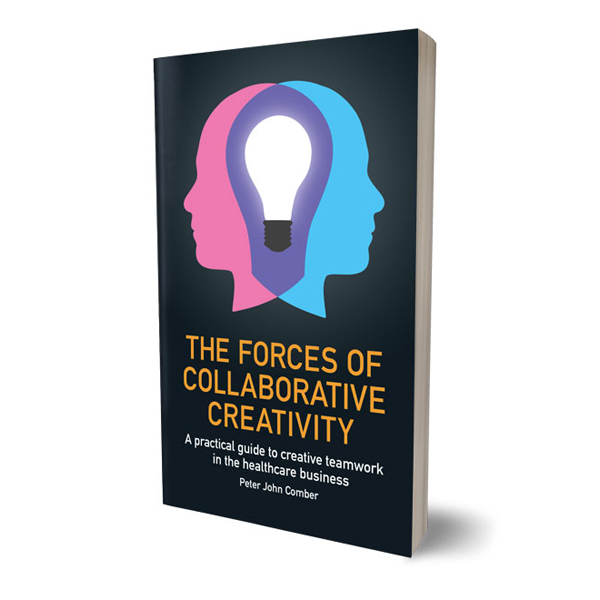Corporate karma.
An epidemic of atrocious corporate behaviour is destroying brand trust and value, simultaneously many companies are eliminating the CMO position - they should consider instating CKOs.
First, please consider this list of nefarious deeds.
Volkswagen emissions scandal
Volkswagen intentionally programmed TDI diesel engines to engage emissions limitations only in laboratory testing conditions. In real-world driving conditions the eleven million Volkswagen “clean diesel” cars sold between 2009 and 2015 polluted up to forty times more than resulted from emissions testing.
To date, Volkswagen has paid over $30 billion in fines, penalties, restitution and lawsuit settlements.
US Opioid overprescription
Aggressive marketing by a group of pharmaceutical companies and distributors led to a 14-fold increase, over two decades, in the medical use of prescription opioids. In 1999 the deaths caused by prescription opioids were just over 2,500 by 2017 that number had risen to 14,000.
This week McKesson Corp., Cardinal Health Inc., and AmerisourceBergen Corp. proposed paying $10 billion to settle claims against them. A global settlement covering all opioid manufacturers and distributors is estimated to amount to as much as $90 billion.
Cambridge Analytica
Through various channels, most notably Facebook, this company illegally amassed a colossal amount of personal data. In the US alone they claimed to have data regarding 230 million people and between four and five thousand data points for each individual. They mined this wealth of data to perform what they called "behavioural microtargeting” and influence beliefs and behaviour. In particular, they are believed to have influenced political voting in Australia, India, Kenya, Malta, Mexico, United Kingdom and the United States.
On 1 May 2018, Cambridge Analytica and its parent company SCL Group filed for insolvency proceedings and closed operations.
Mortgage-backed securities
The so-called ‘subprime’ mortgages contained in ‘risk-free’ mortgage-backed securities have been depicted as the cause of the 2008 financial crisis. In reality, even at their peak in 2007 the size of the mortgage-backed securities market was only $1.3 trillion out of a total $242 trillion of assets in circulation. The real issue was that the entire Western banking system was criminally undercapitalised and illiquid. Successful lobbying by the banks had obtained significant deregulation of the financial sector which allowed incompetent and criminally negligent actions to follow.
On 15 September 2008, with $639 billion in assets and $619 billion in debt, Lehman Brothers filed for bankruptcy.
Roundup scandal
Bayer officially acquired Monsanto on 7 June 2018. What they got was the world’s biggest supplier of genetically modified seeds and Roundup the herbicide they developed to work in perfect unison with the GMO crops. Internal documents dating back as far as 2003 show that the company had doubts about the safety of Roundup and engaged in scientific manipulation and withheld information to keep their product on the market. In March 2015, the International Agency for Cancer Research, an agency within the World Health Organization, classified glyphosate as "probably carcinogenic to humans”.
There are currently thousands of court cases against Bayer, the new owners of Roundup, by people who claim to have developed cancers following exposure to the product and in the first three trials, they have been found guilty. Bloomberg Intelligence estimates the total costs of settlement could be as much as $10 billion.
These are clamorous but not isolated examples of companies or entire categories of companies behaving atrociously, dishonestly and anti-socially. Just, yesterday Mattel shares fell 15.7% after the toymaker announced it was cancelling a bond sale because of “an anonymous whistleblower letter.” Skeletons are coming out of cupboards at an alarming rate and the real issue is the actual existence of the skeletons, not their discovery. In a survey by Weber Shandwick’s KRC Research, executives estimated that, on average, 60% of their firms’ market value is attributable to its reputation. So why gamble with over half the value of your company? Maybe there is a delusional belief that they can get away with it. Maybe they cynically calculate that the monetary cost of their eventual punishment will be inferior to their ill-gotten gains (or someone else’s problem because they will have since moved on to another company).
It is, of course, possible that they don’t appreciate the nature and value of reputation. Former Cambridge Analytica CFO, Julian Wheatland, has described how when the data scandal broke the company looked to PR crisis management companies for help and to his amazement, they all refused, “I thought that was their job”.
Cambridge Analytica called themselves a PR company, but evidently, they didn’t actually understand how PR works or comprehend the concept of reputation.
Is it a coincidence that there is a trend to eliminate the Chief Marketing Officer (CMO) position? Recently Johnson & Johnson, Uber, Lyft, Beam Suntory, Taco Bell and Hyatt Hotels all axed the CMO role, consolidating marketing duties with other functions and with broader mandates. Currently, only 70% of Fortune 500 companies have a CMO at the corporate level and the trend of that percentage is down. Keith Johnston, VP and research director at Forrester recently said, “We’re at that tipping point where we’re trying to decide what marketing really means in this era.”
Marketing is evidently in the throes of a crisis of identity and purpose. Putting a smiling facade on a can of worms doesn’t work like it used to. It’s finally time to make the inside and the outside equally polished and healthy. So I propose a rebrand and a repurpose, behold the majestic rise of the Chief Karma Officer (CKO), an exciting new role with responsibility for corporate karma and a mandate to evaluate all activities for potential negative consequences to reputation. The CKO shall have full visibility of all corporate functions, including financial (tax avoidance is bad for karma). They shall have powers of veto over any activities (no more outsourcing to sweatshops). They shall be responsible for the role the company plays in society (following a policy of avoidance of polluting and poisoning). Ultimately they will also be responsible for global shareholder value (GSV). This new metric reflects not just financial performance but also corporate karma. Savvy investors will appreciate that how you make money is just as important as how much money you make and will concentrate their investments in corporations that guarantee strong financial and karmic dividends. Because the most precious things are those you can’t buy and you can’t buy good karma.





